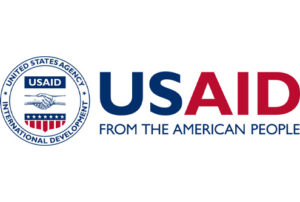Purpose of this resource
This resource captures and presents learnings from using the Urban Living Laboratory approach in the context of displaced persons living in informal urban settings so that others can use it in their own urban-based disaster risk reduction efforts.
What is an Urban Living Laboratory?
An “Urban Living Laboratory” (ULL) is a real-world setting within an urban environment where multi-stakeholders, including those living in the area, collaborate to design or develop, test, implement and evaluate innovative solutions and interventions. ULL is an approach, not a one-off event, that serves as a platform to develop ideas, strategies and items to contribute to improving the overall quality of life in urban communities.
Background
Eleven GNDR members, through the Making Displacement Safer (MDS) programme, have conducted Urban Living Laboratories (ULL) approaches to facilitate inclusive decision-making whilst developing locally-led solutions to disaster risk challenges faced by displaced populations living in urban areas.
Displaced people around the world have sought refuge in urban areas. GNDR members have supported those living in informal settlements or in housing developments built in response to a crisis but not maintained.
They have found that the displaced have been underserved as their new homes are on the edge of cities or urban areas and away from service provision or livelihood options, still in high-risk areas (such as hillsides or watersheds) and excluded from DRR and other information sharing processes or decision-making. They faced a range of challenges, often unresolved for years, and continued to be affected by disasters.
In order to facilitate a process whereby displaced persons were central participants in decision-making on issues that affected them, the ULL approach was used. This is presented here, alongside positive outcomes and lessons learned.
“Since we joined this group we have learned a lot. Since we joined the group they have surveyed us and asked us what is the problem for us. Since learning the problem from us, they found out the solution for these problems in company with us. The ULL had an impact on my heart and community.”
Feedback from a community member
Project funded by
United States Agency for International Development

Our Making Displacement Safer project and this guide has been made possible by the support of the American people through the United States Agency for International Development (USAID) – Bureau for Humanitarian Assistance. Content related to this project on our website was made possible by the support of the USAID. All content is the sole responsibility of GNDR and does not necessarily reflect the views of the USAID.
Visit their websiteAcknowledgement
GNDR is grateful for member’s input and contribution to this guide, and to Urbano Fra Paleo of Extremadura University, Spain for introducing our network to this approach and supporting our trial of it through the Making Displacement Safer project.
The GNDR members involved were:
- Comisión de Acción Social Menonita, Honduras
- Circle of Human Rights and Development, Republic of Congo
- Développement pour un Mieux Être, Niger
- Fundación Salvadoreña para la Promoción Social y el Desarrollo Económico, El Salvador
- Iraqi Institution for Development, Iraq
- Janathakshan GTE Ltd, Sri Lanka
- Manadisaster Organisation, Rwanda
- National Society for Earthquake Technology, Nepal
- Resilience Development Initiative, Indonesia
- Root of Generations, South Sudan
- Voice of South Bangladesh, Bangladesh
- Asia Disaster Risk Reduction Network